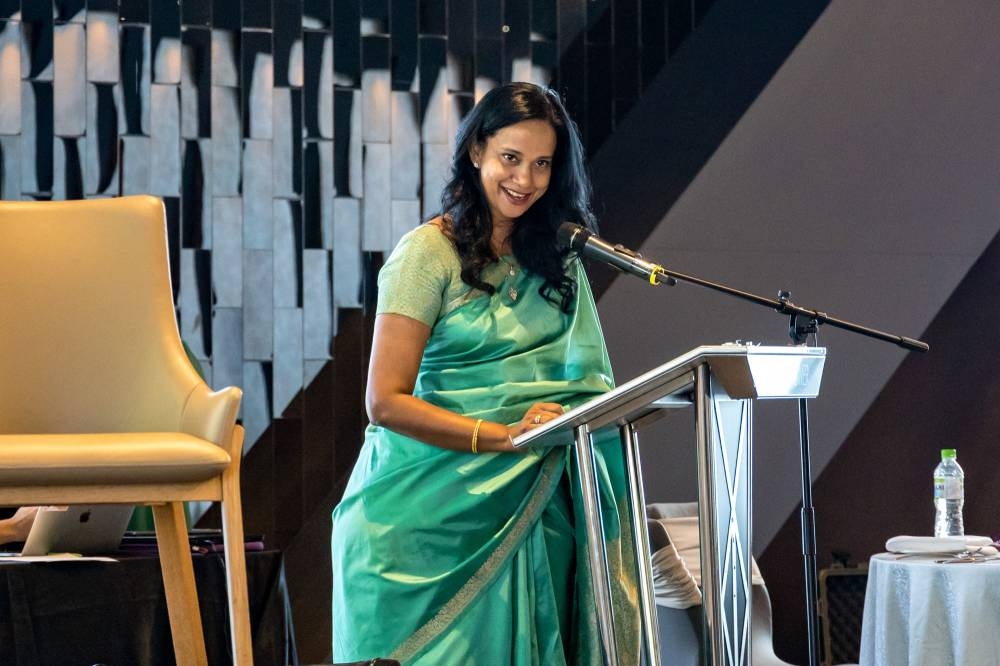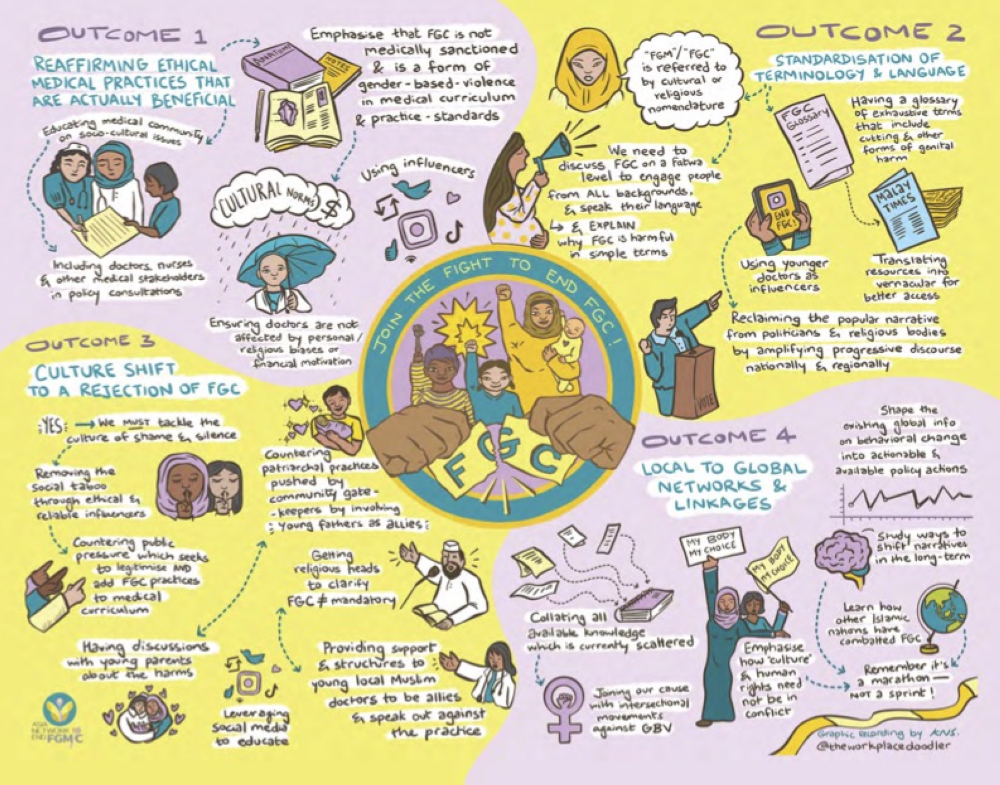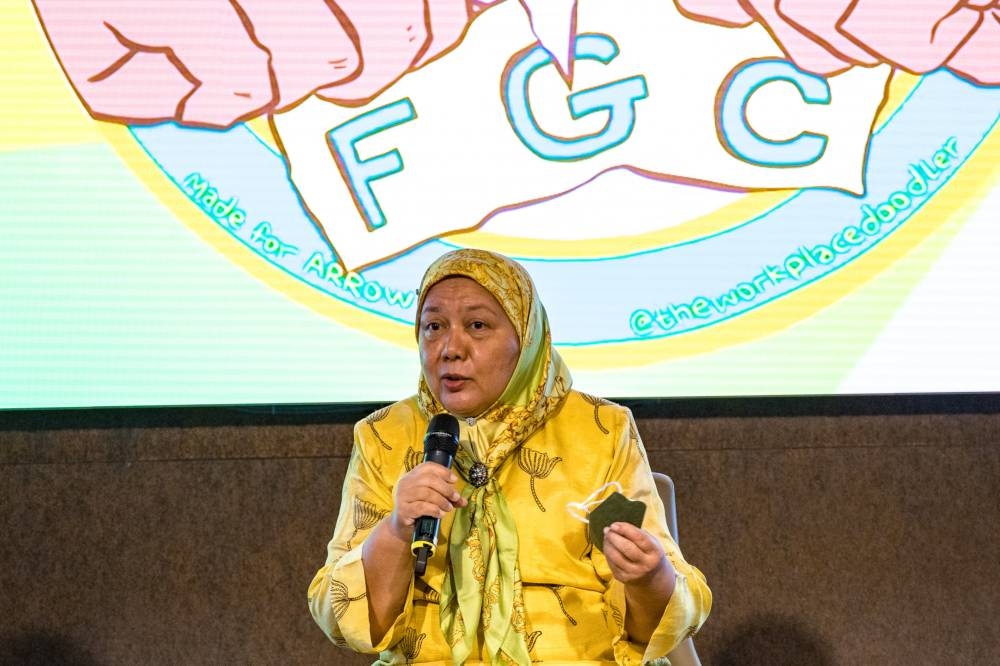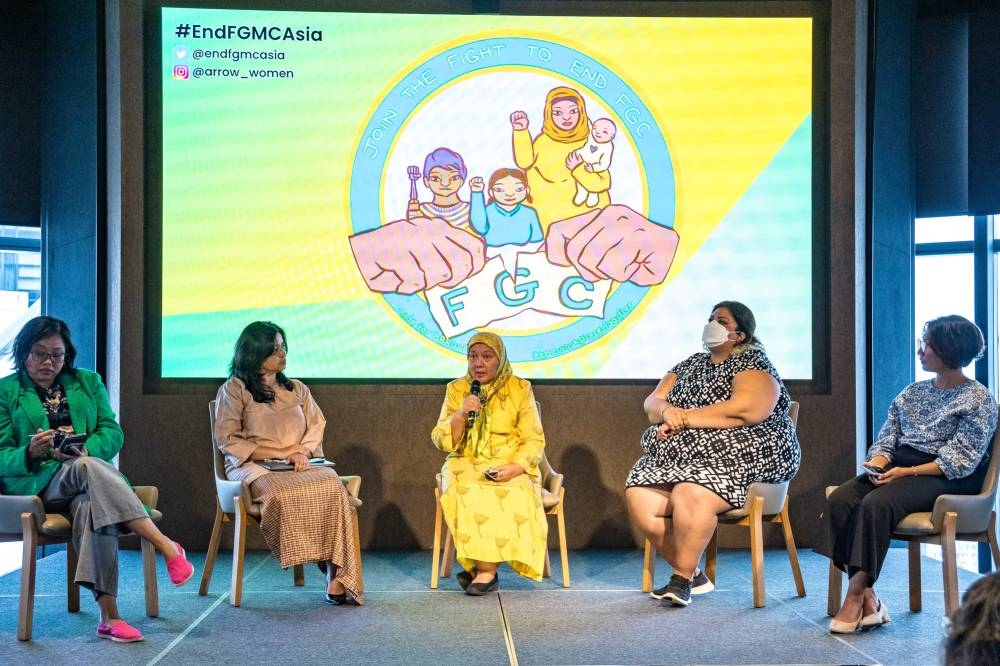KUALA LUMPUR, July 29 — Women's rights groups have today launched a two-year national advocacy roadmap aiming to end female genital mutilation and cutting (FGM) in Malaysia, amid challenges from religious, societal and cultural pressure in addition to a lack of policies and legislation.
The plan will be spearheaded by educating the medical community that FGM is not medically-sanctioned and is a form of gender-based violence, followed by creating a glossary to explain complicated terms to the public, removing the shame of discussing the matter, working with various stakeholders for a more collective approach, and gathering more data and funding for more comprehensive researches.
"We have to do more to ensure safer environments for girls and women in Malaysia and that includes respecting and protecting their bodily autonomy.
"Due to cultural and religious biases, Malaysia struggles to acknowledge that FGM is a violation of bodily autonomy and bodily integrity," said Sivananthi Thanenthiran, executive director of the Asian-Pacific Resource and Research Centre for Women (ARROW) during the event here.

Among the issues of concern is the mismatch in language and classification of the procedures that have kept the debate on this problem here stagnating — while internationally the procedures are described forthrightly as "mutilation", it is still being addressed as merely "circumcision" in Malaysia.
Speaking at the event, Reproductive Health Association of Kelantan president Datuk Dr Rashidah Shuib cited a 2020 study that pointed out that FGM here has been increasingly medicalised, with 20.5 per cent of the procedure done by doctors in Malaysia due to the perceived notion that the procedure is safer and more hygienic as such despite the fact that doctors are not taught FGM in the medical curriculum.
Small-scale, independent studies done in Malaysia have found that more than 90 per cent of Muslim women in Malaysia have undergone some form of FGM, with Type I (complete or partial removal of the clitoris or clitoral hood) and Type IV (non-medical harmful procedures such as pricking, piercing, incising, scraping, cauterising) being the most common.
"Now that it's being done in a safe, sterilised environment. Will they prick a little more? Will they cut a little more?" the professor with Universiti Sains Malaysia's Women’s Development Research Centre asked.

Former Terengganu chief Shariah judge Datuk Ismail Yahya, who also previously served as the state mufti, added his own quick remarks during the event launch: "According to Islamic teachings, there is no evidence that the FGM is mandatory. Those are not my words, but the words of the teachings."
The launch event today, co-organised by ARROW, Orchid Project and supported by the British High Commission Kuala Lumpur, drew stakeholders from different backgrounds including civil society groups, researchers and academics.
"It is our hope that policy-makers, researchers, activists, and other stakeholders will find the content useful in determining the appropriate pathways to be taken in advocating for the ending of FGM in Malaysia," Dr Rashidah said.

FGM refers to procedures involving partial or total removal of external female genitalia or other injuries to the female genital organs for non-medical reasons.
It is estimated that at least 4.1 million women and girls in the world have undergone FGM annually.
In 2018, the United Nations Convention on the Elimination of All Forms of Discrimination against Women (Cedaw) committee had already urged Putrajaya to eliminate the practice of FGM here.
Representatives from Muslim-majority countries had criticised Malaysia for allowing the practice of FGM, even when it is no longer considered to be in line with Islamic teachings.
The Malaysian delegate then pointed out that Malaysia follows the Shafie school of Islamic jurisprudence, and that FGM is obligatory under a 2009 decision by the national fatwa committee unless it brings harm to the girl.
A representative from the Health Ministry had also claimed that FGM is safe and only medical professionals perform the procedure, while comparing it to immunisation programmes for female babies.



















